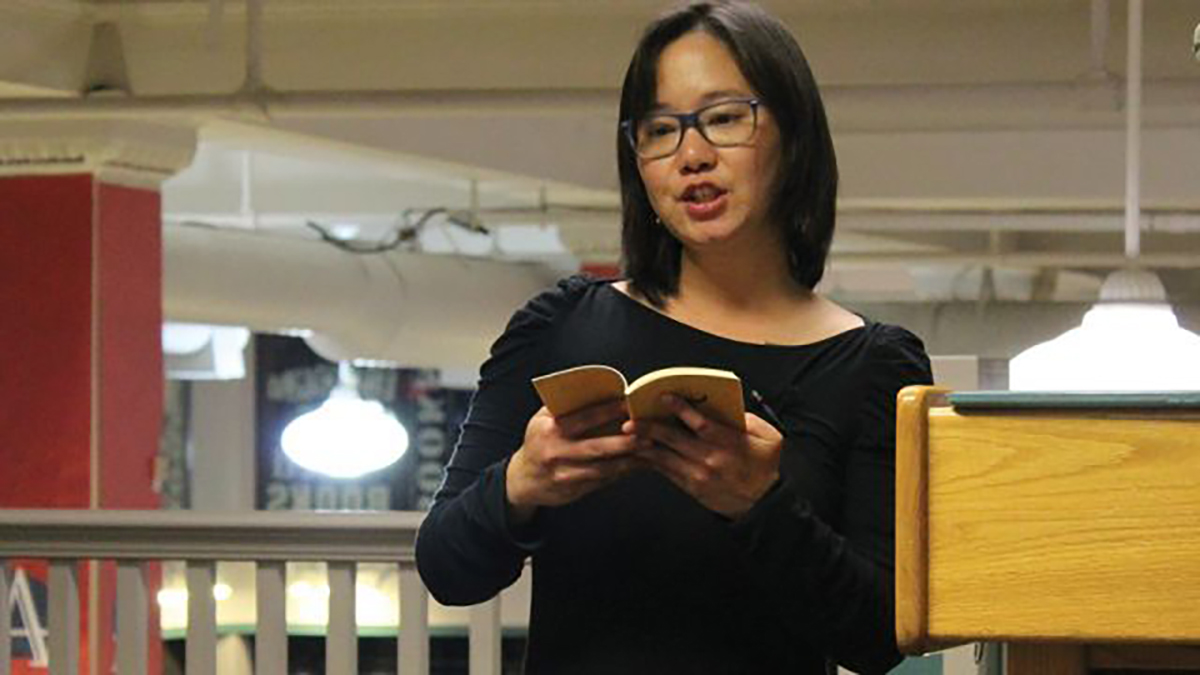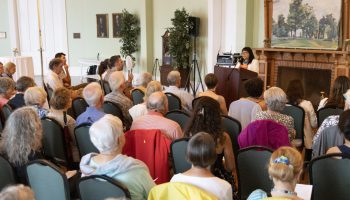
Before her recent trip to Ohio, Lily Hoang knew exactly what she hoped to discuss in her Brown Bag: the American tourist as an identity.
Hoang is the Chautauqua Writers’ Center prose writer- in-residence for Week Seven. She will give her Brown Bag talk — “The Politics of Movement: A Traveler, a Tourist and a Writer Walk into a Bar — ” at 12:15 p.m. Friday, August 10, on the front porch of the Literary Arts Center at Alumni Hall.
Hoang is the author of multiple books, including A Bestiary, Changing and The Evolutionary Revolution. Her work has received recognition through the Cleveland State University Poetry Center’s Nonfiction Book Prize and PEN Open Books Award. She also teaches at UC San Diego and is editor of Jaded Ibis Press.
The idea for her talk sprung from a desire to think more deeply about the economy and politics of tourism, Hoang said, and how to travel ethically. She was also inspired by the Week Seven theme, “The Arts and Global Understanding.”
Originally, Hoang thought she would talk about tourism more globally. She recently finished living in South Africa for 11 weeks. While she was there, she also toured African cities.
Even in those 11 weeks, she found there was a difference between being an American living abroad and an American touring abroad.
She also wanted to look at tourism even before an American sets foot abroad, but is in the process of choosing a vacation destination. For example, she wanted to look at the ethics, from an American perspective, of going to Paris versus Cairo.
A recent trip to the “heartland” of America — Ohio — changed the course of her discussion, Hoang said.
Hoang is an avid traveler, and has been to many places across the United States. After her talk in Chautauqua, she will leave for South America for six weeks.
Yet what she experienced “a great deal of” during her stay in Ohio surprised and affected her.
She experienced racism.
“I actually felt like Ohio was somehow a more hostile territory for me, as an American, as a person of color, than going to other countries,” she said. “And that was a really sad realization and a sad moment.”
Now, her talk will grapple with a new question: What does “American tourist as an identity” even mean in the United States?




